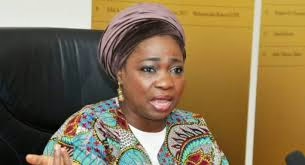The Enugu State Government has announced plans to shut churches and mosques over noise pollution during their services within the Enugu metropolis.
The Chairperson of the Enugu Capital Territory Development Authority, Uche Anya, announced on Thursday at a town hall meeting with residents of the state, including religious leaders.
Mr Anya said that in addition to churches and mosques, the agency will also shut nightclubs and bars that play loud music that disturbs the peace of other residents.
“Churches should build acoustics, mosques and nightclubs should build acoustics.
“We will not allow sounds from churches, mosques, nightclubs and even bars to be heard in other compounds,” he said.
The chairperson explained that the decision follows the government’s anti-noise policy in the state.
He said the government’s decision to implement the policy was in response to over 1,000 petitions from state residents regarding noise pollution.
“So, the biggest problem in Enugu is noise pollution.
“People are no longer able to sleep well at night. In a residential neighbourhood, you will see nightclubs, mosques and churches there making all kinds of noise there. They will tell us they are doing a vigil,” he said.
Mr Anya stressed that the town hall meeting was designed to gather input from religious leaders, nightclub and bar owners, and other residents of the state.
Mr Anya also said the development agency would clamp down on worship centres, nightclubs, and houses built against the state’s existing master plan.
He said the Enugu metropolis cuts across three local government areas in the state: Enugu North, Enugu South and Enugu East.
The chairperson said the metropolis was almost losing its place as a city because various individuals and bodies frequently violated the state’s master plan.
“We have zones in the Enugu metropolis. You can’t establish a church in a residential area.
“We will not allow that. We will shut such churches down,” he said.
Continuing, Mr Anya said: “Also, in a residential area where people are raising their children, and a nightclub is erected there that starts making noise from 4 p.m. until 6 a.m., we will shut it down.”
The chairperson, however, said buildings that were constructed outside the state’s master plan but had government approval would not be shut down.
“But we need to talk. We need to agree that you will implement acoustics or soundproofs. We don’t want to hear the sound of your music in another person’s compound,” he explained.
He said enforcement of the policy will start on 15 November this year.
At the town hall, Cadi Ibekwe, a representative of the Christian community, argued that it would be impossible to completely eliminate sound during worship.
Mr Ibekwe, a Christian cleric, suggested that the agency should consider specifying the level of sound allowed for churches, mosques and nightclubs rather than outright ban.
He appealed to Mr Anya to engage and collaborate with the Christian Community to fashion ways of addressing the concerns before policy enforcement.
“I would like to ask for a meeting after this so that we will look at how this policy may affect us,” he said.
On his part, Abubakar Sambo, a representative of the Muslim community in the state, said their Islamic faith emphasises the need to consider the rights and peace of others during their daily prayers.
Mr Sambo, an Islamic cleric, assured the meeting of the Muslim community’s resolve to restrict sounds being generated during their prayers.
“During the course of discussion with some Islamic leaders, we were made to understand that, as Muslims, it is our duty to regulate the sound within our prayer premises so that we will not encroach into the rights and peace of our neighbours and that we have applied in Enugu State,” he said.
Premium times











Leave a Reply